Free papers: Data collection and patient outcomes | Virtual Summit 2020
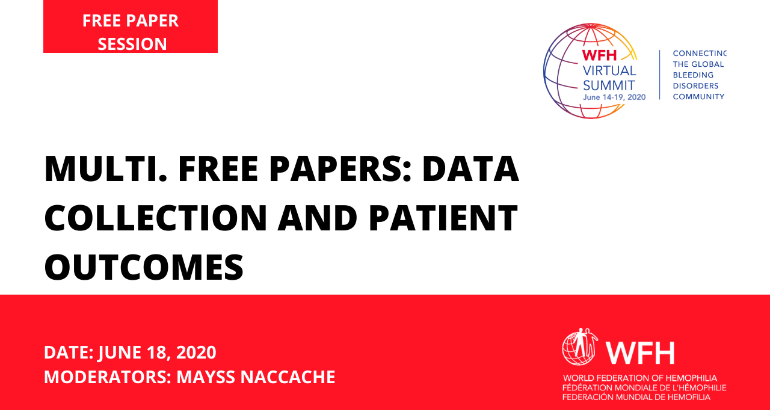
In this session from the WFH 2020 Virtual Summit, Mayss Naccache, Emily Ayoub, Toong Youttananukorn and Ellia Tootoonchian discuss: “The World Federation of Hemophilia World Bleeding Disorders Registry – 2 years update” “Data is the new currency: The World Bleeding Disorders Registry Data Quality Accreditation Program” “Report on the Annual Global Survey – 20 years […]
Better data, better patient outcomes: 20 years of data collection | Virtual Summit 2020
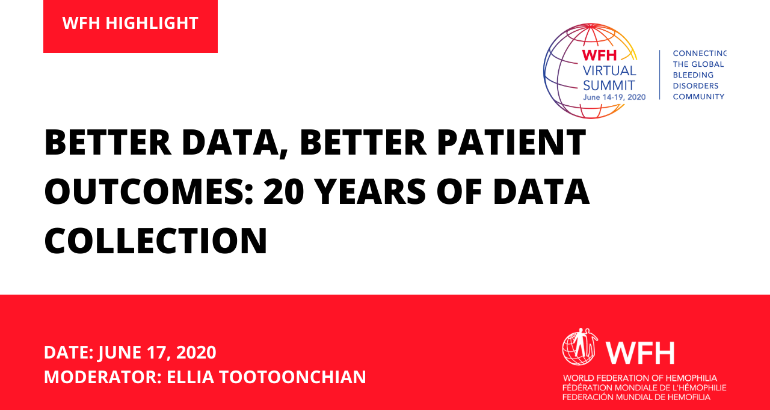
This workshop from the WFH 2020 Virtual Summit, presented by Ellia Tootoonchian, Mark Skinner, Donna Coffin, Alfonso Iorio, Emna Gouider-Belhadjali and Jeff Stonebraker, is intended for healthcare professionals engaged in clinical research and patient leaders and organizations who have an active interest in using health data in their work. The WFH does not engage in […]
Critical need for harmonized post marketing surveillance in gene therapy | Virtual Summit 2020
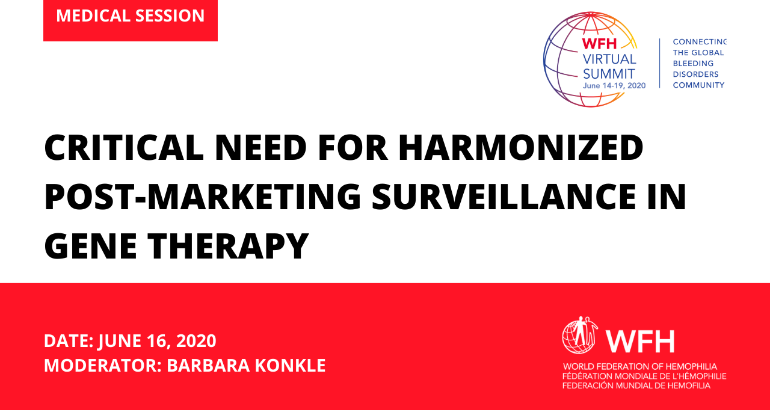
With regulatory approval of the first gene therapy product expected, there is an urgent need for a mechanism to collect long-term data on safety and variability and durability of efficacy. There will be elements required by regulators for post marketing surveillance and additional data needed to enhance our understanding of gene therapy outcomes and their […]
WBDR 2020 Data Report
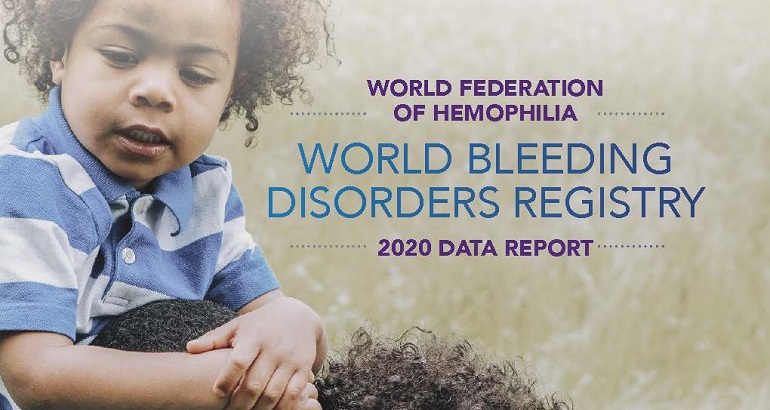
The World Bleeding Disorders Registry (WBDR) 2020 Data Report provides aggregate data on more than 7,000 people with hemophilia around the globe who are enrolled in the WBDR.
WBDR 2019 Data Report
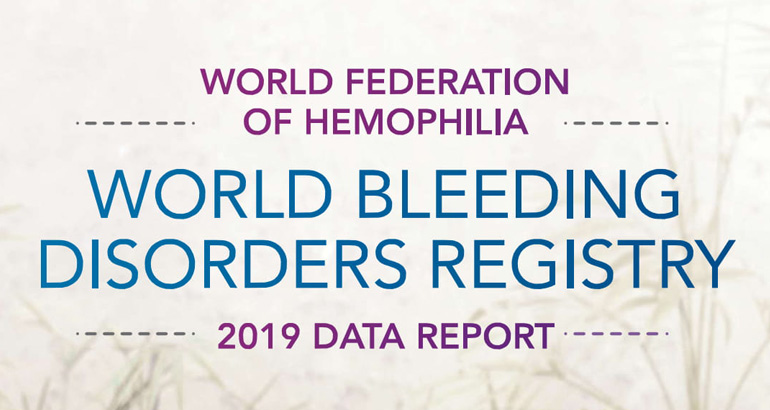
The World Bleeding Disorders Registry (WBDR) 2019 Data Report provides aggregate data on more than 4,000 people with hemophilia around the globe who are registered in the WBDR.
WBDR 2018 Data Report
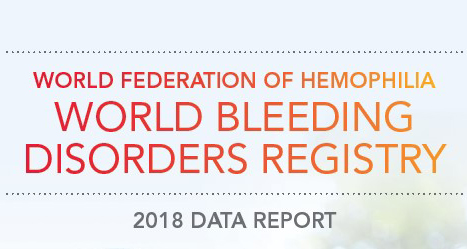
The World Bleeding Disorders Registry (WBDR) 2018 Data Report provides aggregate data on more than 1100 people with hemophilia around the globe who are registered in the WBDR.
Annual Global Survey Mini Report 2: Age
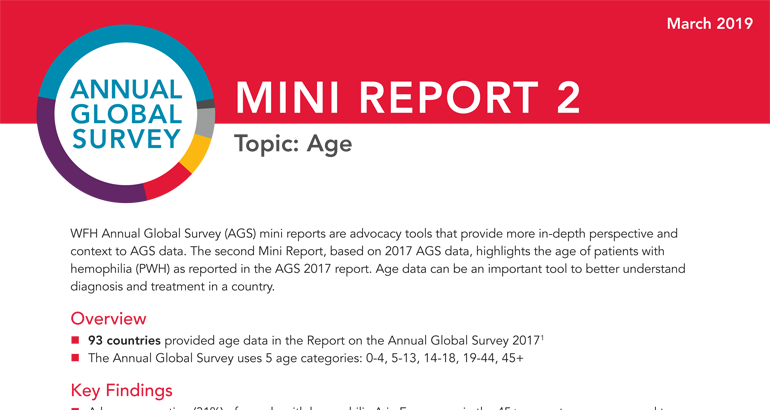
The WFH Annual Global Survey (AGS) mini reports are advocacy tools that provide more in-depth perspective and context to AGS data. The second Mini Report, based on 2017 AGS data, highlights the age of patients with hemophilia. Age data can be an important tool to better understand diagnosis and treatment in a country.
Guide to Developing a National Patient Registry
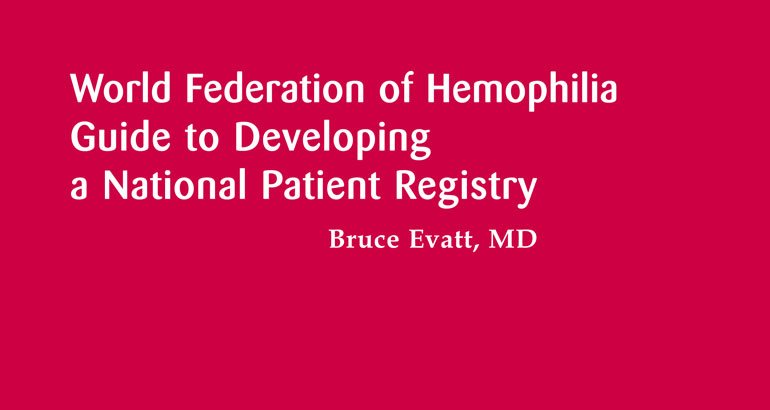
Having a national patient registry means being able to answer fundamental questions about the hemophilia population within a given country. This step-by-step guide outlines the basic principles of data collection, maintenance, and analysis and compares different types of registries.
